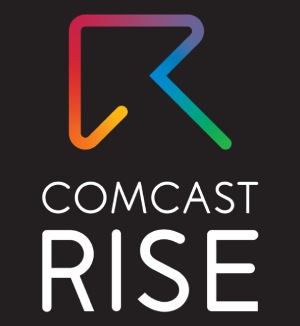Small business grants offer funding opportunities with no repayment obligations and can help business owners promote and further grow their businesses. The best small business grants should provide multiple grant opportunities, business development and educational resources, and a straightforward application process.
Finding grants that your business is eligible for can be time-consuming and competitive, so we’ve compiled a list of some of the best small business grants for your consideration:
- NASE Grant: Best for growing businesses
- Amber Grant: Best for women-owned businesses
- Comcast RISE Investment Fund: Best for DEI initiatives
- FedEx Small Business Grant: Best for businesses with shipping needs
- SBIR & STTR Grants: Best for research and development (R&D) companies
- USDA Rural Business Development Grants: Best for rural businesses
- US Chamber of Commerce Top Small Business Awards: Best for environmentally sustainable businesses
- Visa Everywhere Initiative Grant: Best for fintech startups
- Verizon Small Business Grant: Best for entrepreneurial resources
Best Small Business Grants at a Glance
Maximum Grant Amount | Time in Business Required | Revenue Requirement | Eligible Businesses | |
|---|---|---|---|---|
$4,000 | None | None | Any small business | |
 | $25,000 | None | None | Women-owned businesses |
 | $5,000 | 3+ years | None | Any small business |
$50,000 | 6+ months | None | Small businesses that are FedEx customers | |
$750,000 | 6+ months | Varies | R&D companies | |
 | Varies | None | Varies | Rural businesses |
 | $25,000 | 1+ year | Not over $20 million | Any small business |
$100,000 | None | None | Fintech startups | |
 | $10,000 | None | None | Any small business |
NASE Grant: Best for Growing Businesses
Grant Overview | |
Funding Amount | $4,000 |
Application Dates | Accepted on a rolling basis |
Number of Grants Available | Winners chosen monthly |
Selection Criteria |
|
Application Fee | $12 monthly or $120 annually (membership fee required to apply) |
Eligibility Criteria | |
Qualifying Businesses | Any small business |
Time in Business | None |
Revenue Requirements | None |
The NASE Grant awards monthly grants of up to $4,000 to qualifying small businesses looking to grow their business. Grant funds can be used for business development needs, such as marketing and advertising, team growth, and expansion.
To qualify, you’ll need to have a NASE membership, which starts at $12 per month. The application requires a business plan that represents the structure and services of your business, along with how grant proceeds can support business goals. Applications are accepted on a rolling basis, with grant winners chosen monthly.
Grant recipients can be of any industry, and are selected based on their business need, utilization of grant funds, and how the grant will equip your business for overall growth and success.
Amber Grant: Best for Women-owned Businesses
 | |
Grant Overview | |
Funding Amount |
|
Application Dates | Accepted on a rolling basis |
Number of Grants Available |
|
Selection Criteria | Winners chosen based on business plan and goals |
Application Fee | $15 |
Eligibility Criteria | |
Qualifying Businesses | Women-owned businesses |
Time in Business | None |
Revenue Requirements | None |
More than $30,000 in grants are awarded monthly by the Amber Grant. The grant is available to women entrepreneurs who want to grow their businesses and need financial support. There are three monthly $10,000 awards across various categories, and winners will also be entered to win an annual grant of $25,000.
There’s a $15 application fee, and various essay questions are required. Qualification requirements state that the applicant be 18 years or older, that their business be women-owned, and that their business be based within the US or Canada.
As winners are chosen monthly, applications are accepted on a rolling basis. Winners are chosen based on business needs and the quality of essay responses about business aspirations and how grant funds can help your business grow and be successful.
Comcast RISE Investment Fund: Best for DEI Initiatives
 | |
Grant Overview | |
Funding Amount | $5,000 |
Application Dates | Annually; opens May 1, 2024 |
Number of Grants Available | 500 |
Selection Criteria |
|
Application Fee | None |
Eligibility Criteria | |
Qualifying Businesses | Any small business |
Time in Business | 3+ years |
Revenue Requirements | None |
In 2020, the Comcast RISE Investment fund was established to support small businesses impacted by the COVID-19 pandemic. Since then, it has awarded annual grants to 500 small businesses from select cities in the US to aid growing businesses and support their local communities. Along with $5,000 in grant funding, recipients receive educational resources, business consultation services, and creative production assistance.
The grant emphasizes DEI initiatives and strongly encourages marginalized groups to apply. To qualify, your business must be based in one of the select cities (which varies each year), the owner must be 18 years or older, have no more than 100 employees, and have an established business with a minimum of three years.
The application requires essay responses that explain your business operations, the products and services you offer, and how grant funds would be used to support your business growth and advance DEI initiatives within your local community.
FedEx Small Business Grant: Best for Businesses with Shipping Needs
Grant Overview | |
Funding Amount |
|
Application Dates |
|
Number of Grants Available | 10 |
Selection Criteria |
|
Application Fee | None |
Eligibility Criteria | |
Qualifying Businesses | For-profit businesses that currently are shipping customers of FedEx |
Time in Business | 6+ months |
Revenue Requirements | None |
Businesses that utilize FedEx for their shipping needs can apply for the FedEx small business grant program, which offers 10 annual grants to for-profit small businesses. The grant awards $50,000 to one grand prize winner, and nine runner-ups receive $20,000.
Along with grant funds, winners receive other perks such as access to FedEx Premier Customer Care, a packaging consultation with FedEx Packaging Lab, a My FedEx Rewards $300 voucher, a digital sales consultation, and an invitation to the Small Business Strategic Insights Forum. Winners will also be featured on FedEx’s Small Business Center.
Qualification criteria state that a business must have fewer than 99 employees, be established for at least six months, operate on a for-profit basis, and have an existing customer relationship with FedEx. Applications typically open in March or April every year, with the winners announced in May.
As part of the application, you’ll have to supply a business plan, along with responses that explain your business operations and goals, intentions of how you’ll use grant funds, your customer experience with FedEx, and a short video on your experience as a small business owner. Also considered are your social media presence, website accessibility, brand alignment with FedEx, and your shipping volume and history with FedEx.
SBIR & STTR Grants: Best for Research & Development Companies
 | |
Grant Overview | |
Funding Amount |
|
Application Dates | Varies |
Number of Grants Available | Varies |
Selection Criteria | Varies |
Application Fee | None |
Eligibility Criteria | |
Qualifying Businesses | Small businesses that conduct R&D |
Time in Business |
|
Revenue Requirements | Varies |
For businesses that conduct research and development, the SBIR and STTR programs offer federal grants to qualifying for-profit small businesses. The grants are meant to encourage businesses to work with federal research and development projects that have potential for commercialization.
Qualification criteria specify that businesses must be based in the US, have fewer than 500 employees, and operate as a for-profit company. There are three phases with varying requirements, which include:
- Phase 1: Maximum grant amount of $250,000. Considered the early stage of research and development, and involves the evaluation of products or technology.
- Phase 2: Receive up to $750,000 in funding. Applicable when candidates have the potential for commercialization of products or technology.
- Phase 3: No funding available, occurs when businesses are pursuing commercialization.
You can search for agencies that participate in these programs by visiting the SBIR website. Eligibility requirements will vary depending on the agency, so be prepared to do some research to find an opportunity your business qualifies for.
USDA Rural Business Development Grants: Best for Rural Businesses
 | |
Grant Overview | |
Funding Amount | Varies per program |
Application Dates | Opens once per year |
Number of Grants Available | Varies |
Selection Criteria |
|
Application Fee | None |
Eligibility Criteria | |
Qualifying Businesses | Rural businesses |
Time in Business | None |
Revenue Requirements | Varies |
USDA Rural Business Development Grants are available to rural businesses within the US and are provided by the US Department of Agriculture (USDA). They are intended to provide funding to stimulate business growth in rural communities.
Eligibility criteria will vary but generally require that a business reside in a rural area, have fewer than 50 employees, and have revenue of less than $1 million per year. Qualifications vary depending on the program and may have location or state-specific restrictions.
Applications are accepted on an annual basis and can be obtained from local or state offices. To find an office near you, visit USDA.gov.
US Chamber of Commerce Top Small Business Grant: Best for Environmentally Sustainable Businesses
 | |
Grant Overview | |
Funding Amount | $25,000 |
Application Dates | Applications accepted on an annual basis |
Number of Grants Available | 1 |
Selection Criteria |
|
Application Fee | None |
Eligibility Criteria | |
Qualifying Businesses | Any small business |
Time in Business | 1+ year |
Revenue Requirements | No more than $20 million |
The US Chamber of Commerce offers the annual Top Small Business Awards, previously known as the “Dream Big Awards,” which grants one small business a grand prize of $25,000 to support their business endeavors further. To qualify, a business must reside in the US, operate as a for-profit business, have fewer than 250 employees, and have generated no more than $20 million in the last two years.
For businesses making an effort to minimize their impact on the environment, this is an opportunity to demonstrate your sustainability endeavors. The grant is available to businesses industry-wide, inclusive of new businesses, businesses that focus on environmental sustainability, and other companies that have a positive impact on society.
If chosen as a finalist, you’ll need to prepare a video or written interview explaining your business profile. Finalists go through three rounds of judging before the grand prize winner is named.
Visa Everywhere Initiative Grant: Best for Fintech Startups
Grant Overview | |
Funding Amount | $100,000 |
Application Dates | Varies per region; usually anywhere from May to July |
Number of Grants Available | 18 |
Selection Criteria | Varies by category |
Application Fee | None |
Eligibility Criteria | |
Qualifying Businesses | Fintech startups that provide innovative payment and commerce solutions to consumers and businesses |
Time in Business | None |
Revenue Requirements | None |
The Visa Everywhere Initiative awards multiple grants to fintech companies across the world. Grant prizes differ per region; $100,000 as the top prize and $7,000 for other finalists. Qualifying applicants must demonstrate how their product or service imaginatively utilizes Visa products to support their business.
Qualification criteria state the applicant must be 18 years or older and be the owner of an innovative fintech company. For a list of industry-specific criteria, read Visa’s terms and conditions.
Application requirements vary depending on the region and category of your business. The application deadline also varies per region but is usually anywhere from May to July. Winners also receive networking and product placement opportunities as part of the award package.
Verizon Small Business Grant: Best for Entrepreneurial Resources
 | |
Grant Overview | |
Funding Amount | $10,000 |
Application Dates | Accepted on a rolling basis |
Number of Grants Available | Varies |
Selection Criteria |
|
Application Fee | None |
Eligibility Criteria | |
Qualifying Businesses | Small businesses in select cities |
Time in Business | None |
Revenue Requirements | None |
Verizon’s Digital Ready program offers entrepreneurial resources to small business owners inclusive of over 40 online business courses, more than 200 live and virtual events with mentors and peers, and grant funding opportunities. Grants of $10,000 are awarded to qualifying small businesses to help them grow and support their business ventures.
To qualify, you must sign up to be a part of the program and partake in at least two of the offered courses, coaching sessions, or community events. From there, you can register and apply for grant funds, which are available to businesses in select cities.
Applications are accepted on a rolling basis, and winners are usually announced early in the year. The applicant will have to provide insight into their business plan and goals and reside in one of the chosen cities at the time of application.
How to Get a Small Business Grant
Grants are generally pretty simple to apply for, but you should prepare a few items so you can streamline the process. Consider the following steps when applying for a small business grant:
Step 1: Prepare Required Documents
Grant applications will have varying documentation requirements; however, there are some common documents you should be prepared to provide. Like applying for a small business loan, this includes a business plan, financial statements, and legal documents pertaining to the operations of your business. It’s good to have these documents on hand regardless of the financial opportunity you’re applying for, whether it be a grant or a small business loan.
Step 2: Search for Grants You’re Eligible For
You don’t want to waste time and effort applying for grants you are ineligible for, so set aside some time to do some research into grants for which you qualify. There are many small business grants available across a wide variety of industries and business structures. That being said, grants often have niche requirements or industry specifications to apply, so be sure to read through all eligibility criteria before applying.
Step 3: Submit Your Grant Application
Once you’ve done your research and compiled a list of the grants you’re eligible for, you can begin the application process. It’s important to note any supplemental material requirements and application deadlines when submitting your application.
If you are a women-owned or minority small business, there are grants available specifically for these groups. Check out our roundups of the best small business grants for women and the top minority small business grants for more information.
Small Business Grants Pros & Cons
| PROS | CONS |
|---|---|
| There’s no repayment obligation for grant funds. | Grants are limited and have a lot of competition. |
| There are various grant opportunities for a wide variety of businesses. | Applications can require a lot of work and be a time-consuming process. |
| Grant applications are usually inexpensive or free. | Eligibility requirements can make it difficult to qualify. |
Alternatives to Small Business Grants
If you need quicker access to funds or simply don’t qualify for any small business grants, there are numerous alternative funding options to explore instead. Consider the following:
- Startup business loans: Startup business loans are specific to new businesses with limited resources that need financing options to support their business efforts.
- Small Business Administration (SBA) loans: Businesses with a strong credit history can take advantage of the favorable rates and terms of government-backed SBA loans.
- Crowdfunding: Crowdfunding attracts a variety of investors looking to support a business by means of varying return options. It is generally low risk and can promote a business through a fundraising platform. For guidance, see our article on how to crowdfund a business.
- Venture capital: Equity stakes are offered to venture capitalists in exchange for venture capital investments. These funds are used to grow a business, usually with multiple funding rounds, and are expected to provide a return on investment. Read more about how venture capital works.
- Business line of credit: A business line of credit offers flexible access to capital since it is a revolving credit facility and can be used to make purchases and pay off expenses over time.
Frequently Asked Questions (FAQs)
Business grants provide funding opportunities for small businesses that can be used for a variety of business expenses. With some grants, other resources are offered such as mentorship programs, educational tools, or networking opportunities.
Yes. Through various organizations, you can apply for any grant you’re eligible for. However, keep in mind this may not be the case if you apply for multiple grants within the same organization.
Application criteria will vary depending on the grant, but it’s usually a good idea to prepare a business plan, financial statements, and documentation that you’re able to operate legally.
Bottom Line
Grants for small businesses can provide valuable financial support to small or startup businesses needing capital. Grant funds can often be utilized for virtually any business purpose, which makes for an ideal funding source since you’re not required to pay the funds back. While there can be a fair amount of competition to be a grant recipient, it’s worthwhile to consider applying in exchange for funds that have no risk or obligation attached.